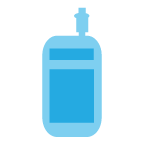Minnesota DUI law is similar to the drunk driving laws of other states, in that every Minnesota DUI arrest triggers two separate cases: a criminal court case, where a variety of drunk driving punishments can be sought, and a Minnesota Department of Public Safety case, where your Minnesota driving privileges are affected. If you’ve been arrested in Minnesota its important to contact an attorney right away to protect your rights.
URGENT: Minnesota DWI laws have changed. Effective August 2005, the legal limit for Minnesota DWI laws has been reduced from .10 to .08.
Minnesota DWI law is similar to the drunk driving laws of other states, in that every Minnesota DWI arrest triggers two separate cases: a criminal court case, where a variety of drunk driving punishment is sought, and a Minnesota Department of Public Safety case, where your Minnesota driving privileges are affected.
Minnesota DWI law is different than other states in one important respect: when someone is arrested for violating Minnesota DWI law, they have the right to speak to a DWI defense attorney before taking a chemical test to determine alcohol content. If you do not know a DWI defense lawyer to call, the police are to furnish you with a phone book. It is critical to make the effort to call a Minnesota DWI defense lawyer to protect your rights as soon as possible following your stop for driving under the influence of alcohol. You may contact a qualified local DWI defense lawyer by calling toll-free: 1.800.DWI.LAWS.
Minnesota DWI punishment in criminal court is punishable for up to 90 days in jail, plus fines, mandatory DWI alcohol education courses, DWI driver’s license consequences, and more. If a first-offense DWI is considered a gross misdemeanor due to aggravating factors, the punishment and penalties for drunk driving can include up to one year in jail and a fine of $3,000.00.
Minnesota DWI punishment for a second-offense drunk driving conviction is significantly harsher. A second offense DWI conviction within ten years of a prior offense is a gross misdemeanor and carries DWI punishment and penalties of up to one year in jail, plus a fine of up to $3,000.00.
Minnesota DWI punishment goes up significantly for a third offense DUI arrest within 10 years. Your car will be immediately impounded. There is significantly increased exposure for jail time on a third-time DWI. It is imperative that an alcohol abuse evaluation be obtained. If you are not an alcoholic, you will have to prove it at this point.
Minnesota DWI laws make a fourth offense within 10 years a felony. Minnesota DWI law for a felony drunk driving conviction will include three years in prison and a fine of not less than $14,000.00.
Minnesota DWI laws include various “degrees” which relate to the seriousness of the charge. The DWI punishment and penalties that are imposed will vary, depending upon the degree of the Minnesota drunk driving conviction, and the presence of any aggravating factors in the Minnesota DWI case. These degrees and specific punishments and penalties are as follows:
- First DWI or Implied Consent license revocation in past ten years: Misdemeanor Fourth Degree DWI;
- Second DWI offense or Implied Consent license revocation in past ten years: Gross Misdemeanor Third Degree DWI;
- Third DWI offense or Implied Consent license revocation in past ten years: Gross Misdemeanor Second Degree DWI;
- Fourth or more DWI or Implied Consent license revocation in past ten years: Felony First Degree DWI;
The new drinking and driving laws also create tougher sentencing laws, including many mandatory minimum criminal penalties for repeat offenders.
A first-degree DWI is charged if there are three or more aggravating factors. Aggravating factors may include:
- A prior impaired driving incident within a 10 year period (this includes DWI license revocations or DWI convictions);
- Blood Alcohol Content is more than two times the legal limit (.20);
- Child Endangerment exists (child in the vehicle at the time of offense);
A first-degree DWI offense is a felony punishable by up to five years in jail and a $10,000 fine. The state will also impound the license plates of the driver and may also seek a forfeiture of the driver’s vehicle. That means the State would retain the vehicle without compensation to the owner. Moreover, the statute requires law enforcement to hold the DWI suspect in jail until the first court appearance if:
- The new DWI violation occurs within 10 years of 3 or more prior impaired driving convictions; or
- The new DWI violation is the 2nd offense and the defendant is under 19 years of age;
- The new violation occurs with a Blood Alcohol concentration of .20 or more at the time or within 2 hours of the driving conduct;
- The New DWI occurs and the driver’s license has been canceled as inimical to public safety
A second-degree DWI is charged if there are two aggravating factors. Aggravating factors may include:
- A prior impaired driving incident within a 10 year period (this includes DWI license revocations or DWI convictions);
- Blood Alcohol Content is more than two times the legal limit (.20);
- Child Endangerment exists (child in the vehicle at the time of offense);
A second-degree DWI offense is a gross misdemeanor punishable by up to a year in jail and a $3,000 fine. . The state may also impound the license plates of the driver and seek to forfeit the vehicle that was being driven. Again, the statute requires law enforcement to hold the DWI suspect in jail until the first court appearance if:
- The new DWI violation occurs within 10 years of 2 or more prior impaired driving convictions; or
- The new DWI violation is the 2nd offense and the defendant is under 19 years of age;
- The new violation occurs with a Blood Alcohol concentration of .20 or more at the time or within 2 hours of the driving conduct;
- The New DWI occurs and the driver’s license has been canceled as inimical to public safety.
A third-degree DWI is charged if there is one aggravating factor or if the driver refused to take the breath, blood, or urine test and it is the first offense
A third-degree DWI offense is a gross misdemeanor punishable by up to a year in jail and a $3,000 fine. The state may also impound the license plates of the driver and seek to forfeit the vehicle that was being driven. Again, the statute requires law enforcement to hold the DWI suspect in jail until the first court appearance if:
- The new DWI violation occurs within 10 years of 2 or more prior impaired driving convictions; or
- The new DWI violation is the 2nd offense and the defendant is under 19 years of age;
- The new violation occurs with a Blood Alcohol concentration of .20 or more at the time or within 2 hours of the driving conduct;
- The New DWI occurs and the driver’s license has been canceled as inimical to public safety.
A fourth-degree DWI is charged if there are no aggravating factors. That means no prior DWI or DWI-related license revocations. Additionally, the driver cannot have a blood alcohol concentration in excess of twice the legal limit (.20) or have refused to take a test to determine that blood alcohol content.
A fourth-degree DWI offense is a misdemeanor punishable by up to 90 days in jail and a $1,000 fine.
Mandatory Sentences DWI – §169A.275
The new DWI statute also includes mandatory sentences for repeat offenders.
- 2nd DWI – 30 days executed jail sentence with a minimum of 48 hours consecutive
- 3rd DWI – 90 days executed jail sentence with a minimum of 30 days consecutive
- 4th DWI – 180 days executed jail sentence with a minimum of 30 days consecutive
- 5th DWI – 365 days executed jail sentence with a minimum of 60 days consecutive
* If you are on probation for a related DWI offense, sentencing is consecutive rather than concurrent.
Minnesota Driver’s License Consequences
If you refuse to take the breath test when you are stopped for a possible DWI, your license will be revoked for at least a year. If you are stopped while driving and score over .08 percent on the breath test you will lose your license for:
- 90 days, or
- Six months if you are under age 21, or
- 180 days if your driver license was revoked in the last ten years for an alcohol-related offense; and
- If your BAC reading on the breath test was over .20, these periods double.
To get your license reinstated you must:
- Take and pass the written DWI / DUI driver’s license test.
- Pay a reinstatement fee of $680.00.
- Reapply for a driver’s license, and pay the $18.50 reapplication fee.
- Comply with all other requirements of Driver and Vehicle Services. These requirements may include attending a seminar on the subject of how alcohol affects your driving; and especially if you have had prior offenses, they may include completion of alcohol treatment.
If you have two or more drunk driving-related offenses within five years, or three or more prior drinking and driving-related offenses during your lifetime, your driver’s license will be suspended for at least a year and maybe forever. You will have to satisfy the Commissioner of Public Safety that you have been rehabilitated before you can legally drive again.
Before your regular driver’s license is reinstated, you may be eligible for a limited license with which you will be allowed to drive to and from work, and perhaps to and from a few other very necessary activities (doctor appointments, alcohol treatment, AA meetings, dropping a child at school, etc.) In order to get a limited license, you must pass the DWI / DUI driver’s test, pay the reinstatement fee and the reapplication fee, and interview with a Driver Evaluator. The Evaluator decides if you are eligible and what the limitations will be. There is always a waiting period before you can get the limited license. The minimum wait is fifteen days, and how much longer you have to wait – up to and including forever – will depend upon whether or not there are prior drunk driving convictions, and whether or not your alcohol level was above a .20.








